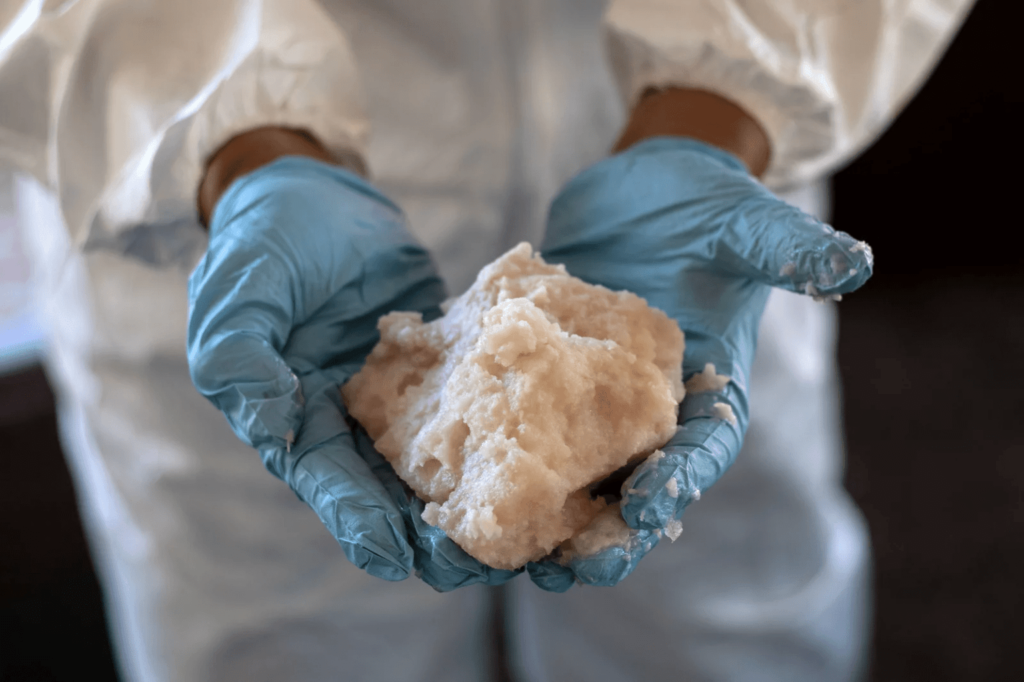Meth Addiction Treatment

Breaking Free From Meth: Understanding the Side Effects and Treatments that Actually Work
Methamphetamine doesn’t exactly have a great PR team, and for good reason. It’s notorious for the havoc it wreaks on people’s lives, bodies, and minds. But while “Breaking Bad” might have dramatized the dangers of crystal meth, the real-life battle with meth addiction is anything but scripted. The good news? Recovery is possible, and the path is clearer than it may seem.
If you or a loved one is seeking meth addiction treatment, it’s important to understand what meth does to the body, what treatment options are out there, and why professional help is often the game-changer in the fight against meth dependence. White Oak Recovery Center breaks it all down here.
What Are Methamphetamines?
Methamphetamines, commonly known as meth or crystal meth, are powerful and highly addictive stimulants that affect the central nervous system. Unlike prescription amphetamines used for medical conditions like ADHD, meth is often manufactured illegally in makeshift labs and sold as a recreational drug.
What makes meth so dangerous is how quickly it takes hold. People may start using it for an energy boost, weight loss, or even out of curiosity, but its euphoric rush often comes at the cost of severe addiction. Meth addiction doesn’t just sneak up on you. It charges in full force.

Short-Term Side Effects of Meth Use
Meth’s immediate effects can feel like a rollercoaster, delivering a surge of intense euphoria, increased energy, and heightened alertness. But this high comes with some dangerous baggage.
Short-term side effects of meth use often include:
- Rapid heart rate and elevated blood pressure
- Hyperactivity and restlessness
- Decreased appetite and insomnia
- Anxiety, paranoia, and aggression
- Overheating and excessive sweating
While the high might last several hours, the crash that follows can be brutal, often driving users into a vicious cycle of bingeing and crashing. That cycle is where dependence takes root.
Long-Term Side Effects of Meth Addiction
The longer someone uses meth, the more the drug chips away at their physical and mental health. Chronic meth use can lead to severe consequences, some of which may be irreversible if left untreated.
Long-term side effects include:
- Severe dental problems (“meth mouth”)
- Skin sores and infections due to obsessive scratching
- Weight loss and malnutrition
- Memory loss and cognitive decline
- Mood disorders like depression and anxiety
- Psychosis, hallucinations, and paranoia
- Damage to the heart, liver, and lungs
How Do You Treat Meth Dependence?
Treating meth dependence is not a one-size-fits-all situation. Because meth addiction impacts both the brain and body, treatment approaches need to address physical, emotional, and psychological healing.
The first step is usually medical detox in a supervised setting, ensuring withdrawal symptoms like fatigue, depression, and intense cravings are managed safely. From there, comprehensive behavioral therapies such as Cognitive Behavioral Therapy (CBT) and contingency management help individuals rebuild healthier habits and coping mechanisms.
Family involvement and peer support groups are also crucial. Meth dependence thrives in isolation, but recovery flourishes in connection.
What Are the Most Effective Treatments for Meth Addiction?
The most effective treatments for meth addiction focus on structure, accountability, and emotional support. Evidence-based behavioral therapies remain the gold standard. Two of the most effective approaches are:
Cognitive Behavioral Therapy (CBT)
Helps individuals identify and change thought patterns that lead to substance use.
Contingency Management (CM)
Uses motivational incentives to encourage abstinence and positive behaviors.
While there’s currently no FDA-approved medication specifically for meth addiction, ongoing research is promising. In the meantime, a well-rounded approach that combines therapy, peer support, and holistic wellness is the best defense.
What Sort of Treatment Is Recommended for Meth Addicts?
A structured inpatient program at a specialized meth addiction treatment center in California is often recommended, especially for individuals with severe dependence or co-occurring mental health issues. Inpatient care offers a safe environment, away from triggers, where individuals can focus solely on recovery.
For those who may not require 24/7 supervision, outpatient programs can provide flexibility while still delivering intensive therapy and support. The key is a personalized treatment plan that meets the individual’s unique needs.
If you’re searching for meth addiction treatment in California, choosing a facility that offers comprehensive care, including detox, therapy, aftercare planning, and support for co-occurring disorders, is critical.
Finding Crystal Meth Addiction Treatment That Works
Recovery from meth addiction can feel like an uphill climb, but it’s one you don’t have to face alone. At White Oak Recovery Center, our crystal meth addiction treatment programs are designed to support you every step of the way, from detox to long-term recovery strategies.
Our compassionate team understands that addiction is complex, and we approach treatment with a mix of medical expertise, evidence-based therapies, and genuine human care. We’re here to help you reclaim your life from the grip of meth addiction.
Start Your Journey With Treatments for Meth Addiction at White Oak Recovery Center
If you or a loved one is seeking effective treatment for meth addiction, now is the time to act. At White Oak Recovery Center, we provide individualized care in a healing environment designed for recovery. As a leading meth addiction treatment center in California, we are committed to helping you build a foundation for lasting sobriety.
Don’t wait for things to get worse. Reach out to our admissions team today and learn how our treatments for meth addiction can help you or someone you care about take the first step toward a healthier future.







